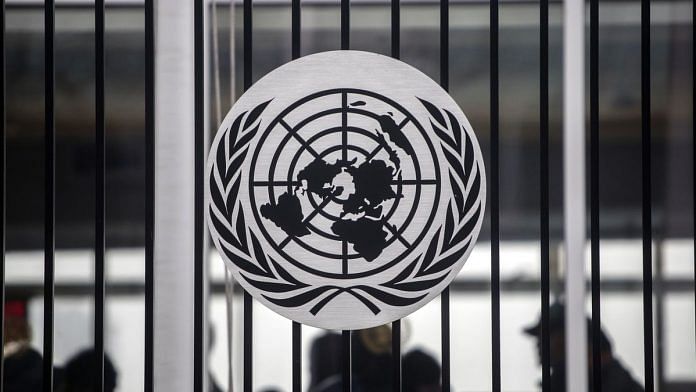New Delhi: Terror group al-Qaeda’s Indian subcontinent affiliate has retained a presence in at least six provinces of Afghanistan and has approximately 200-400 fighters, including Indian nationals, a new United Nations Security Council (UNSC) report has revealed.
The report, which was released late Monday, was prepared by a UNSC group that monitors counter-terrorism sanctions targeting al-Qaeda and the Islamic State.
“[Al-Qaeda in the Indian Subcontinent] retains a presence in Afghanistan, in the provinces of Ghazni, Helmand, Kandahar, Nimruz, Paktika and Zabul, where the group fought alongside the Taliban against the ousted government. AQIS is estimated to have between 200 and 400 fighters, mainly from Afghanistan, Bangladesh, India, Myanmar and Pakistan,” it said.
The 22-page report, signed by UNSC Committee Chair and Norwegian national Trine Heimerback, also stated that contrary to media reports, Aslam Farooqi, former leader of the Islamic State faction Islamic State — Khorasan Province (ISKP), had “escaped” from an Afghanistan prison and “subsequently rejoined the group in a senior capacity”.
The alleged mastermind of the March 2020 terror attack on a gurdwara in Kabul, Farooqi had last month been reported by Indian and Pakistani media as having been killed in a shootout, either during an investigation or due to disputes within the ISKP.
This is not the first time Farooqi has been named as a key figure, as National Investigation Agency (NIA) officials had in August 2021 alleged that Farooqi was among numerous ISKP leaders attempting to recruit Indians, and that many former Lashkar-e-Taiba (LeT) members were part of ISKP.
Also Read: As Texas synagogue hostages rescued, gunman allegedly linked to ‘Lady Al-Qaeda’ Aafia Siddiqui
‘Terror groups have more freedom in Afghanistan now’
The 29th edition of the UNSC’s Analytical Support and Sanctions Monitoring Team report noted the Taliban offensive and subsequent takeover of Afghanistan as the most significant event of the “reporting period”, and the primary source of concern as a hub of terrorism.
“There are no recent signs that the Taliban has taken steps to limit the activities of foreign terrorist fighters in the country. On the contrary, terrorist groups enjoy greater freedom there than at any time in recent history. However, Member States have not reported significant new movements of foreign terrorist fighters to Afghanistan,” the report said.
It further stated that while the al-Qaeda has “maintained a strategic silence” after initially congratulating the Taliban on 31 August last year for its return to political power, the ISKP is the “primary kinetic threat” in the eyes of the Taliban, contextualising some of the conflicting reporting on ISKP attacks in Afghanistan and the alleged killing of Farooqi. The Uyghur extremist group East Turkestan Islamic Movement (ETIM) has also backed the Taliban government, the report added.
‘Islamic State gaining ground in West Africa’
The report also broadened its focus beyond Afghanistan to track terrorist activity and developments on a global scale, with West Africa representing a particular region of concern where the Islamic State is gaining ground, and Southeast Asia a “bright spot” with ISIS and al-Qaeda affiliates suffering defeats. In conflict zones like Iraq, ISIS “has evolved into a primarily rural insurgency” while al-Qaeda allies and affiliates continue to control northwestern Syria.
“Al-Qaida and ISIL (Islamic State of Iraq and the Levant) affiliates in West Africa appear to have made decisive progress by exploiting local grievances, overwhelming stretched security forces and navigating complex interrelationships between armed groups,” the report stated, citing Mali, Burkina Faso and Niger as some of the nations facing threat.
“Both Indonesia and the Philippines reported significant gains in countering threats from ISIL and Al-Qaida affiliates in the South-East Asia region, leading to an overall decline in terrorist activity and some optimism that the operational capability of the groups may be significantly degraded,” the report revealed, adding that lone-wolf attacks are still an ongoing risk.
(Edited by Gitanjali Das)
Also Read: We asked why Pakistanis support Lashkar-e-Taiba. Results will surprise you



